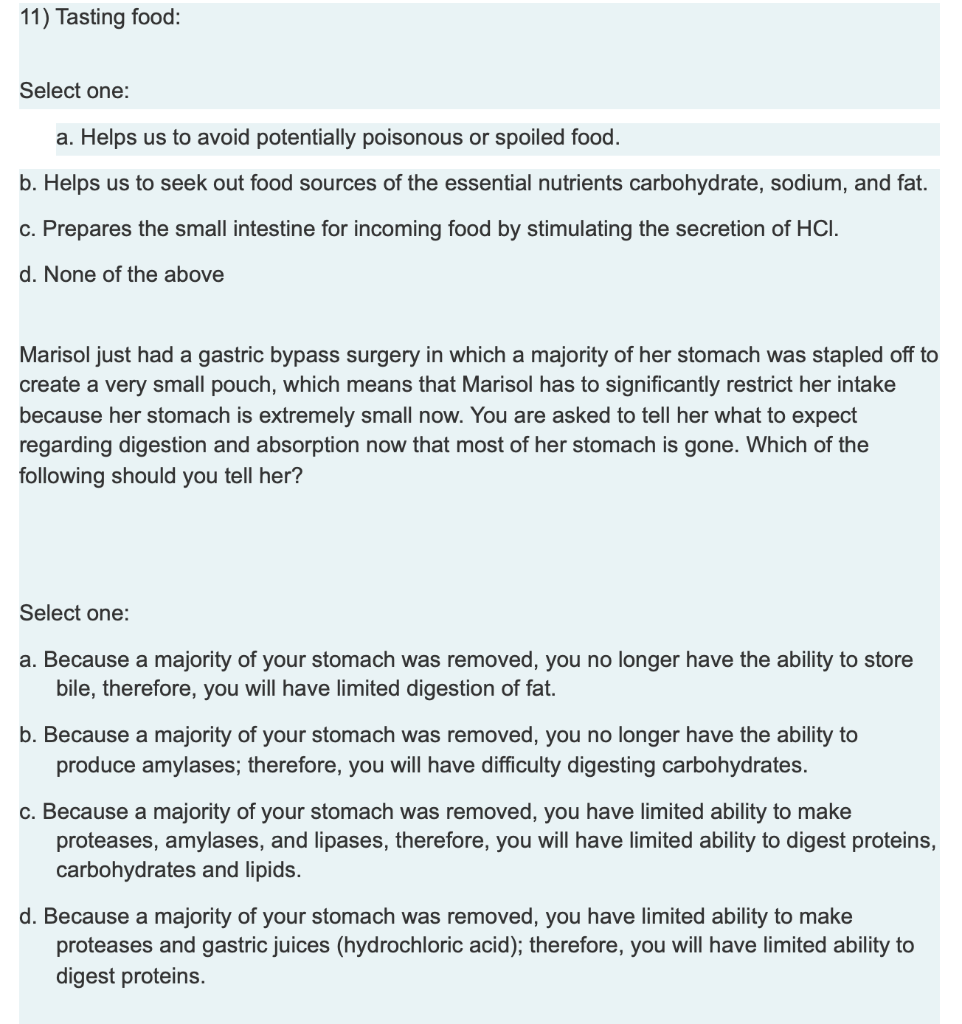Transcribed Image Text from this Question
11) Tasting food: Select one: a. Helps us to avoid potentially poisonous or spoiled food. b. Helps us to seek out food sources of the essential nutrients carbohydrate, sodium, and fat. c. Prepares the small intestine for incoming food by stimulating the secretion of HCl. d. None of the above Marisol just had a gastric bypass surgery in which a majority of her stomach was stapled off to create a very small pouch, which means that Marisol has to significantly restrict her intake because her stomach is extremely small now. You are asked to tell her what to expect regarding digestion and absorption now that most of her stomach is gone. Which of the following should you tell her? Select one: a. Because a majority of your stomach was removed, you no longer have the ability to store bile, therefore, you will have limited digestion of fat. b. Because a majority of your stomach was removed, you no longer have the ability to produce amylases; therefore, you will have difficulty digesting carbohydrates. c. Because a majority of your stomach was removed, you have limited ability to make proteases, amylases, and lipases, therefore, you will have limited ability to digest proteins, carbohydrates and lipids. d. Because a majority of your stomach was removed, you have limited ability to make proteases and gastric juices (hydrochloric acid); therefore, you will have limited ability to digest proteins.
(Visited 10 times, 1 visits today)




